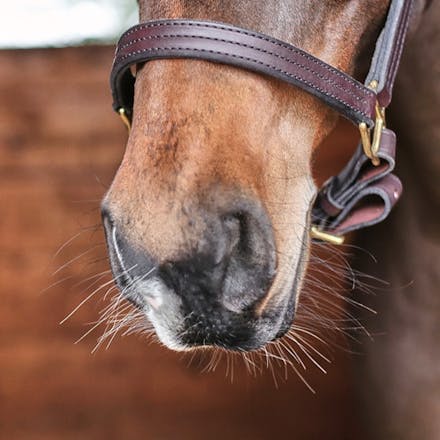horses whiskers info...

Horses' whiskers, also known as vibrissae, serve various purposes and are important sensory organs for these animals. Here are five key pieces of information about horses' whiskers:
Sensory Function:
Horses' whiskers are highly sensitive tactile hairs. They are deeply embedded in the horse's face and muzzle and are connected to nerve endings.
These whiskers help the horse navigate and explore its environment. They are particularly sensitive to touch and can detect changes in air currents, allowing the horse to sense nearby objects and navigate in the dark.
Spatial Awareness:
Whiskers contribute to a horse's spatial awareness. They are particularly important when the horse is grazing or navigating through tight spaces.
The whiskers can help the horse determine the proximity of objects and obstacles, providing valuable information about its surroundings.
Protection and Reflexes:
Whiskers serve a protective function by helping horses avoid collisions and injuries. If a whisker comes into contact with an object, it triggers a reflex that causes the horse to react and adjust its position to avoid potential harm.
This protective reflex is known as the "whisker twitch" and is an important part of a horse's defensive mechanisms.
Communication:
Horses may use their whiskers as a form of communication with other horses. They may touch whiskers during social interactions, indicating friendliness or establishing hierarchy.
Whisker movement can also be an indicator of a horse's emotional state, with changes in position or stiffness potentially reflecting stress or tension.
Importance for Equine Grooming:
Whiskers play a role in the grooming behavior of horses. They use their whiskers to explore and investigate objects, as well as to locate and grasp food items.
When horses are eating, their whiskers help them determine the location and size of food items, especially when grazing or foraging in less illuminated areas.
In summary, horses' whiskers are vital sensory tools that contribute to their overall well-being. Understanding and respecting the function of whiskers is important for horse care and handling, and unnecessary trimming or removal of whiskers can interfere with a horse's ability to gather essential information from its environment.



